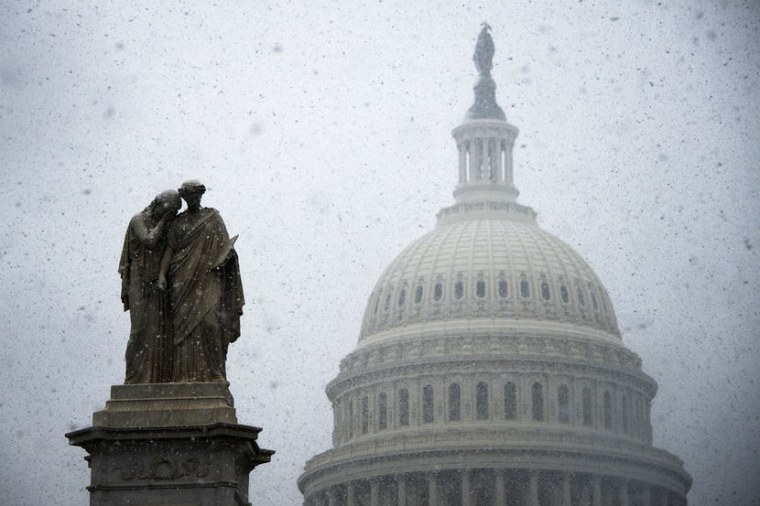With many COVID relief measures set to expire in a couple of months, Democrats are eager to stay ahead of the problem by passing a new and ambitious economic measure. Among the many questions, of course, is how big the relief package will be and how it will pass Congress.
On the first question, negotiations are ongoing, though President Joe Biden recently unveiled a $1.9 trillion blueprint that would include funding for, among other things, implementing a national vaccination program.
On the second question, Democratic leaders yesterday began laying the legislative groundwork to approve the package through the budget reconciliation process -- which in practical terms would empower Dems to rely on majority rule and circumvent a Republican filibuster. CNBC reported yesterday:
House Majority Leader Steny Hoyer, D-Md., added votes to the chamber's schedule next week "that will give us the option of using budget reconciliation to advance a COVID-19 relief package," he told lawmakers Tuesday night.... In a letter to Democrats later Wednesday, House Speaker Nancy Pelosi, D-Calif., said committee chairs "are working on coronavirus relief legislation as a basis for reconciliation, should that step be needed." She added that "we hope and expect" Republicans will back an aid bill, but "Democrats will not take any tools off the table."
Republicans aren't pleased. Jake Sherman reported this morning that GOP senators -- most notably Maine's Susan Collins, Alaska's Lisa Murkowski, and Ohio's Rob Portman -- are "frustrated" and "angry" that Democrats are prepared to govern without them. Sherman added that these GOP senators insist Democrats "are moving way too quickly toward reconciliation, which they take as a signal that [Dems] have no interest in the GOP's support."
If we assume these complaints have been offered in good faith -- and really, that's a generous assumption -- I'll confess that I don't understand what these Republicans don't understand.
Let's take a stroll down memory lane.
Not long after Bill Clinton took office, the new Democratic president, responding to a recession, pushed a rather ambitious economic agenda. The White House hoped to get Republican support, which did not materialize: Clinton's plan received literally zero GOP votes in the House and literally zero GOP votes in the Senate, before passing anyway. A robust economic recovery soon followed.
Almost immediately after Barack Obama took office, the new Democratic president, scrambling to respond to the Great Recession, pushed Congress to quickly approve the Recovery Act. The White House practically begged Republicans to help rescue the economy, but the extensive appeals amounted to very little: Obama's plan received literally zero GOP votes in the House and three GOP votes in the Senate (one of the three switched parties soon after). The plan passed and the economic recovery that followed ended the Great Recession.
As Joe Biden took office, the new Democratic president, desperate to rescue the economic crisis he inherited from his Republican predecessor, unveiled an economic plan of his own. Once again, the White House started reaching out to GOP lawmakers in the hopes that it would be a bipartisan endeavor. Republicans responded by questioning the need for the relief package and demanding the Democrats make it smaller and less effective.
What's more, the disappointment from Collins, Murkowski, and Portman notwithstanding, there's been no indication whatsoever that even if Democrats agreed to make the relief bill vastly worse, on purpose, that 10 GOP senators would vote for it.
So to recap, Republicans have presented Democrats with two options:
- Pursue a bipartisan bill, which would take several weeks to negotiate, which would deliver less economic relief, and which might not pass anyway.
- Pursue a Democratic bill, which could be considered more quickly, which would deliver more economic relief, and which stands a vastly better chance of actually becoming law.
Who, exactly, would see this as a tough call? Why would Democratic leaders waste precious time on a dubious strategy that would produce a less effective result?
Why in the world would Republican senators -- each of whom were only too pleased to use this same process to pass tax breaks for the wealthy without Democratic buy-in -- be "frustrated" and "angry" about any of this?

